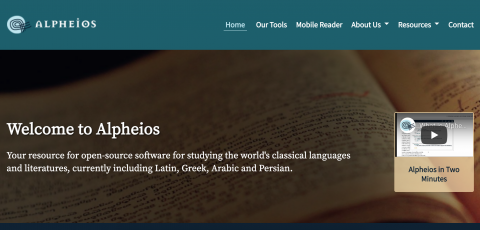Annie K. Lamar
April 5, 2021
Alpheios Reading Tools (henceforth Alpheios) is an open-source web extension that allows users to access information about Greek, Latin, Classical Arabic, or Persian text on any web page. After enabling the extension in Chrome, Safari, or Firefox, you simply double-click on any word on any page to see definitions, morphology, usages, and grammatical information.
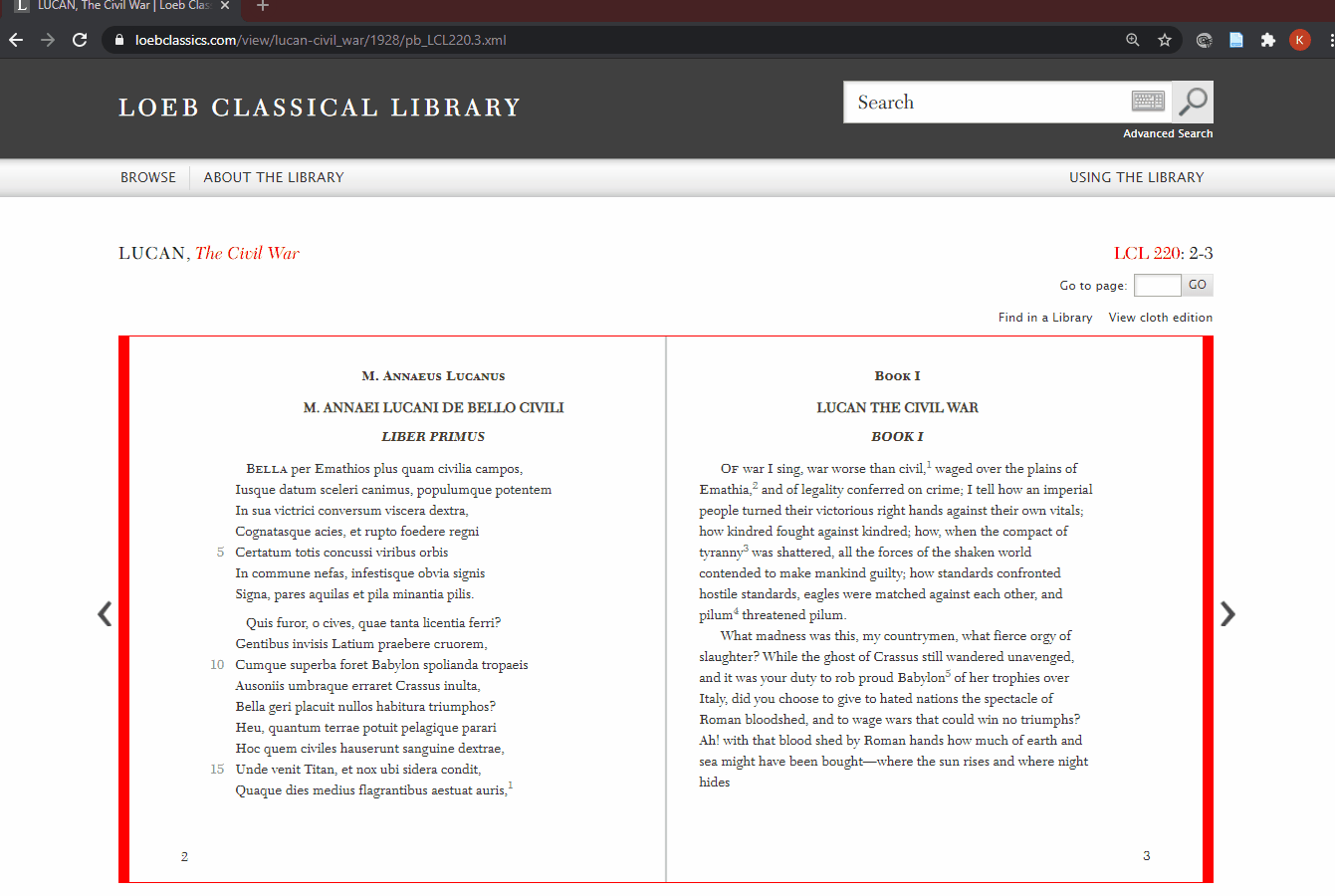
Figure 1: Alpheios Reading Tools integrates fluidly with the online Loeb Classical Library.
As an avid user of Alpheios in my capacities as both a Ph.D. student and instructor, I jumped at the chance to speak with Harry Diakoff and Bridget Almas, two of the founding members of Alpheios. Harry Diakoff is currently the president of the board of The Alpheios Project, Ltd., which is a registered 501(c); Bridget Almas is the Executive director and Chief Software Architect for the project.
After the three of us logged into our Zoom call and exchanged the now-customary explanations of time zones and virtual backgrounds, I opened our conversation with what I thought was a straightforward question: “Can you provide a list of the creators and contributors of the Alpheios project to include in our metadata?”
Harry and Bridget struggled to provide a list that included everyone who worked on the project. Alpheios is an open-source project, Bridget explained, which “means that it is an outgrowth of work from the community done over the years.” For example, Alpheios has worked closely with members of the Perseus project, Logeion, and the Packard Humanities Institute (PHI). Bridget elaborated that the Alpheios project “wouldn’t exist without the work that digital classics has done over the years to create [the tools used by Alpheios]…it’s the ecosystem and community of open sharing of data and resources that makes it possible.”
Inspired by Bridget’s characterization of the digital Classics community, we delved into a long conversation about the various features of Alpheios, their expanding target audience, and the future goals of the project. While The Alpheios Project, Ltd. is involved in several Classics projects, this review will focus on their web extension, Alpheios Reading Tools.
Features
After you enable the extension and click on a word, Alpheios provides several possible short definitions, possible parsing, full definitions from various dictionaries, example usages (from PHI), inflection tables, and grammatical information. The definitions that Alpheios produces are loaded from several dictionaries, depending on the selected language. The usage examples can be filtered by author and sorted by preceding and following word.
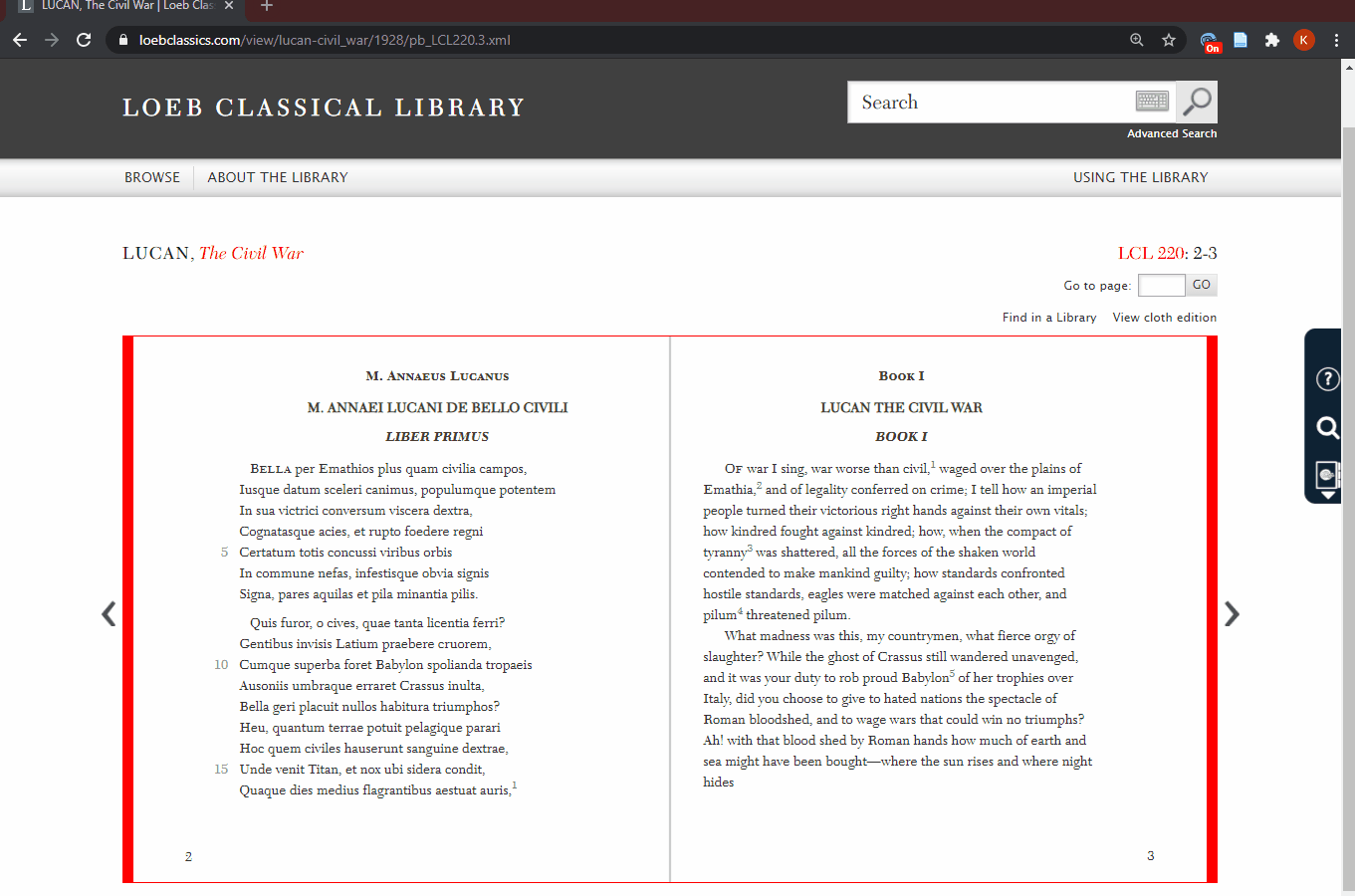
Figure 2: Alpheios provides several definitions, possible parsings, example usages from PHI, inflection tables, and grammatical information.
And — a particularly useful feature for busy students — you can choose to add any word you clicked on to your personal word list. You can filter and sort your word list by session, how often you defined the word, or by words you have marked as important. To further streamline the learning process, you can download your word list or export it straight to a Quizlet flashcard set.
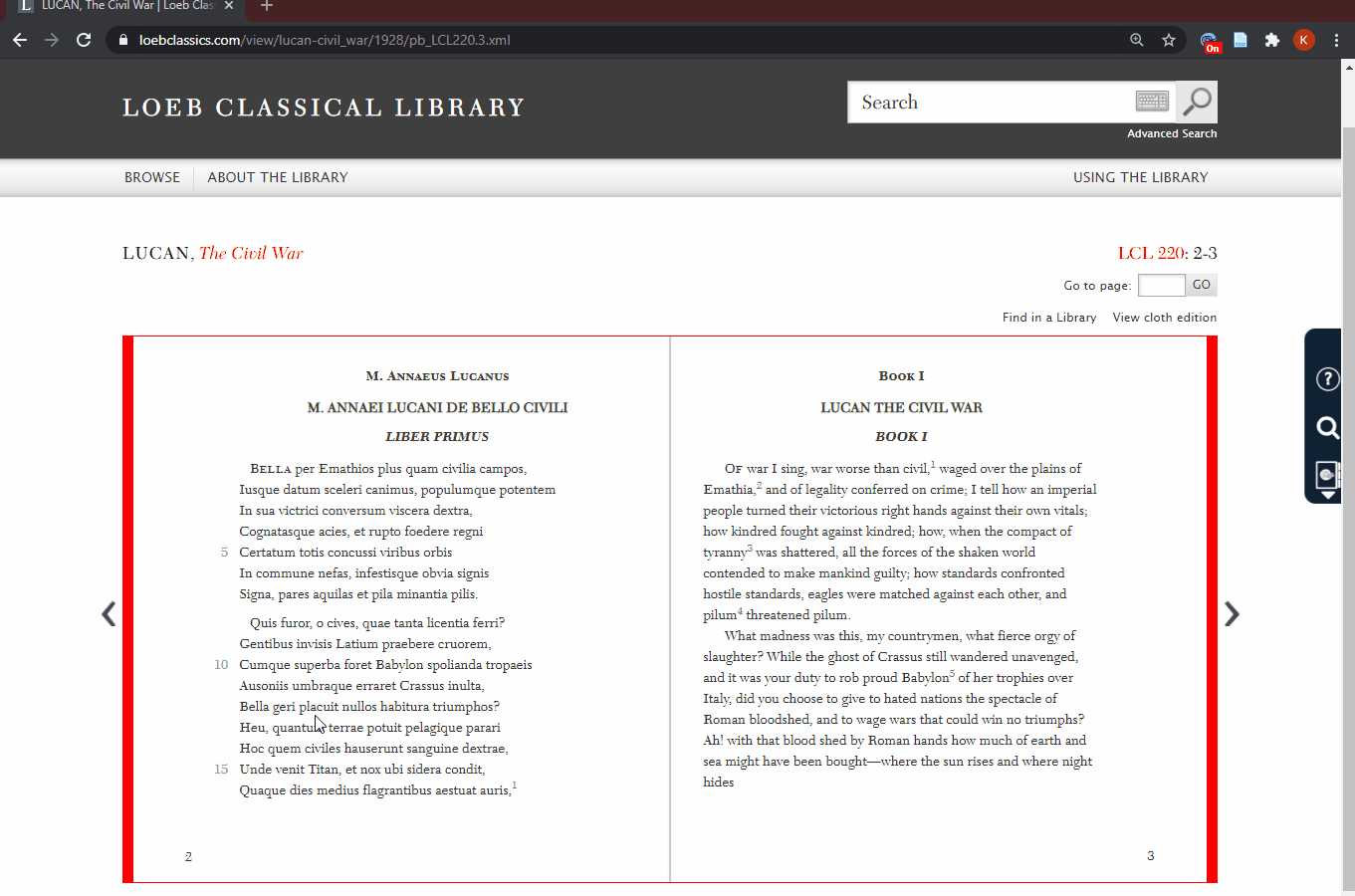
Figure 3: Alpheios allows you to create your own custom word lists.
Alpheios integrates fluidly with the Loeb Classical Library, the Latin Library, and the Scaife Viewer, and allows the user to change easily between Greek, Latin, Arabic, and Persian.
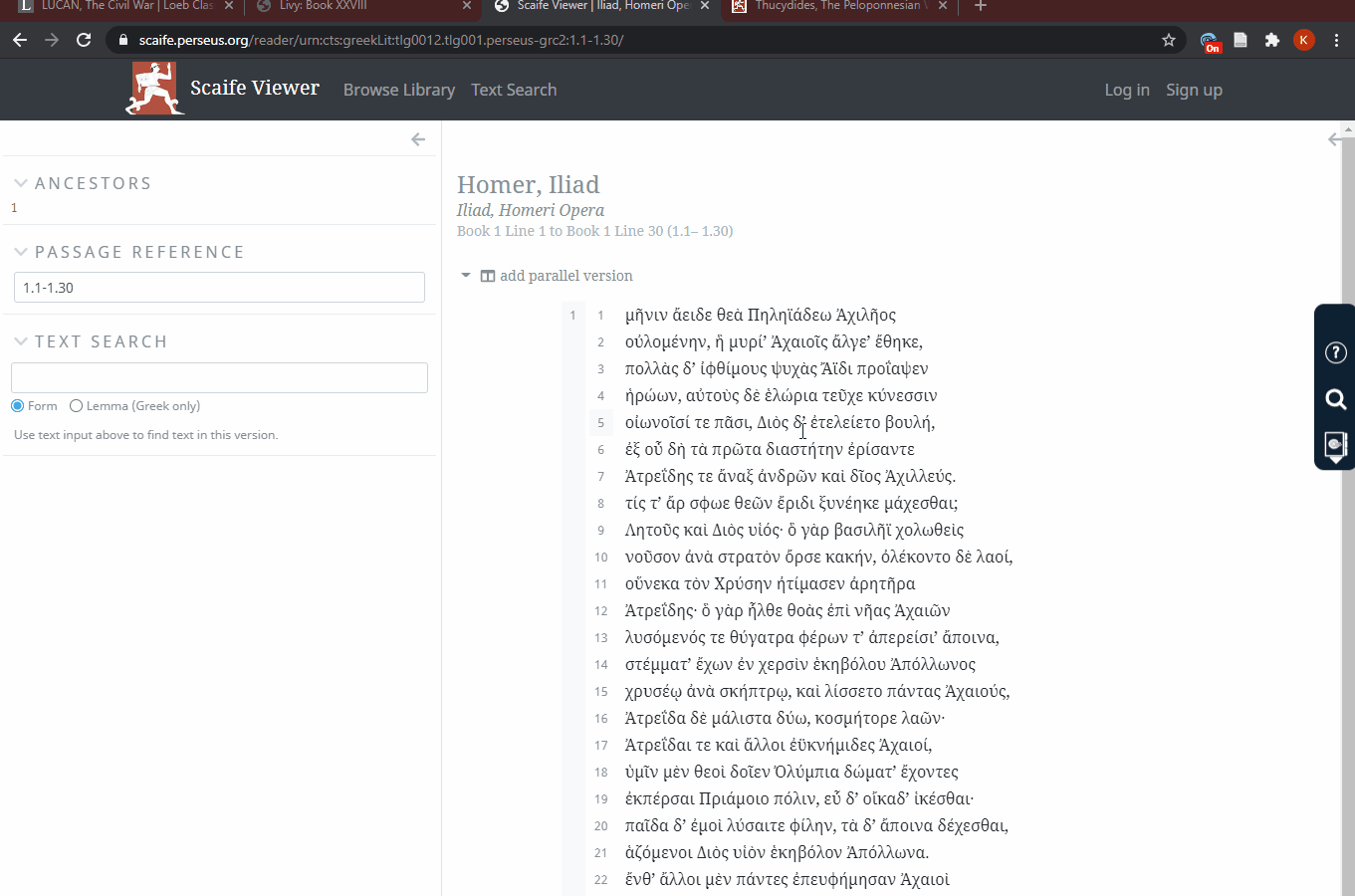
Figure 4: Alpheios also integrates well with the Scaife Viewer.
Although Alpheios occasionally fails to recognize or parse a word, the features of this tool heavily outweigh its limitations.
Audience
Another advantage of Alpheios is its cost: free, open-source, and easily accessible. When I asked Harry whom they had in mind when they created Alpheios, he remarked that the team had “tried to make it a general tool, but we did want to include people who were often left out — people who were not affiliated with any academic institution, for example. We wanted to make the tools available online for free so that anyone — all over the world — would have access to them. We always hoped people would use them in classrooms, but that was not our exclusive target…. We have a somewhat romantic vision of the student who didn’t have access to a Classics course, or the retired person who studied Classics many years ago.”
In fact, the Alpheios team’s commitment to publishing accessible tools has presented unique complications for their project. The Alpheios board has struggled to decide whether to keep their product entirely free, or to publish a version that uses materials under copyright for a subscription fee. Harry lamented that some languages — like Arabic — would really benefit from the inclusion of a copyrighted dictionary, but publishers are often hostile to the idea of licensing their materials, because they prefer to sell hard copies or subscriptions to their own online services. By choosing not to include material from copyrighted dictionaries and texts, Harry explained, they worry that they limit the attractiveness of the tool to graduate students and the scholarly community.
Some scholars, however, have already embraced Alpheios as a pedagogical tool. Since Alpheios can be used both by students who are impatient and want to forge ahead and by students who need extra support in their studies, Harry told me, it can be a powerful tool for classical language teachers who work with many students at once.
One of the highest usage sites for Alpheios is Project Arkhaia, an online reading tool for AP Latin students that has integrated Alpheios directly into its web page (you, too, can integrate Alpheios into your website). Professor Vanessa Gorman of the University of Nebraska-Lincoln, whom Harry and Bridget describe as a “champion of Alpheios,” has designed her ancient Greek course around 21st-century tools like Alpheios. Last year, Bridget gave a talk at the American Classical League Virtual Institute about the effective use of Alpheios as a teaching resource.
Future Goals
The Alpheios website states that the creators of the tool hope to use Alpheios as a platform to collect data on language acquisition. Fascinated, I asked Harry and Bridget to expand on what data they hope to collect and why.
Harry is very interested in second language acquisition (SLA) and, in recent years, has cultivated close relationships with experts in SLA. In the future, Harry hopes to use Alpheios to follow Latin students over multiple semesters of acquiring the language. Harry says Latin is the perfect language for such an experiment. Since Latin is a “language you study in isolation from the rest of your culture,” it’s an excellent candidate for SLA research. Furthermore, Latin is an inflected language, which allows you to separate your acquisition of grammatical knowledge from semantic knowledge. Although The Alpheios Project, Ltd., had established an advisory group and a project plan, this area of research is currently on hold, pending funding.
Harry and Bridget also hope to add audio to Alpheios, allowing students to hear words pronounced and poetry read aloud. Dreaming about the future of the project, Harry remarked that he wants to align multiple recitations of the same texts, giving listeners the same experience as hearing “different pianists playing the same piece of music.”
Conclusions
As I wrapped up my conversation with Harry and Bridget, I asked how students and scholars could get involved in their project. The two agreed that the biggest help would be user feedback — success stories, problems, and ideas for the project should be sent to support@Alpheios.net. Alpheios, Harry explains, is a project that lends itself to crowdsourcing rather than “individual supreme efforts.” That is, Alpheios is a tool made possible only by the work of Classics community at large. Bridget reflects, “It’s a wonderful community…the digital Classics community and all the people who do this work as a labor of love, it’s really amazing.”
Alpheios Reading Tools is a simple but powerful tool for reading texts on the web. With an abundance of useful features and increasing examples of pedagogical uses, Alpheios is a highly recommended tool for Greek and Latin learners of every kind. Behind this tool is a team of people committed to collaboration with the digital Classics community and to making classical language learning accessible to anyone.
Metadata
TITLE: Alpheios Reading Tools
DESCRIPTION: Chrome and Firefox extension that allows users to access information about Greek, Latin, Classical Arabic, or Persian text on any web page.
NAME: Harry Diakoff, Bridget Almas, and Michael Gursky; many other freelance and community developers and researchers; and the Alpheios advisory board.
PUBLISHER: The Alpheios Project, Ltd., a 501(c)(3) non-profit organization.
DATE CREATED: Version 3.3.3 was released in January 2021. Alpheios reading tools was originally developed between 2007-2010. The beta release of the current iteration of tools was in October 2018.
DATE ACCESSED: Version 3.3.3, February 2021.
AVAILABILITY: Free and open source.
RIGHTS: ISC License
CLASSIFICATION: databases, dictionaries, Greek, language learning tools, Latin, pedagogy, reference materials, texts.
Authors
